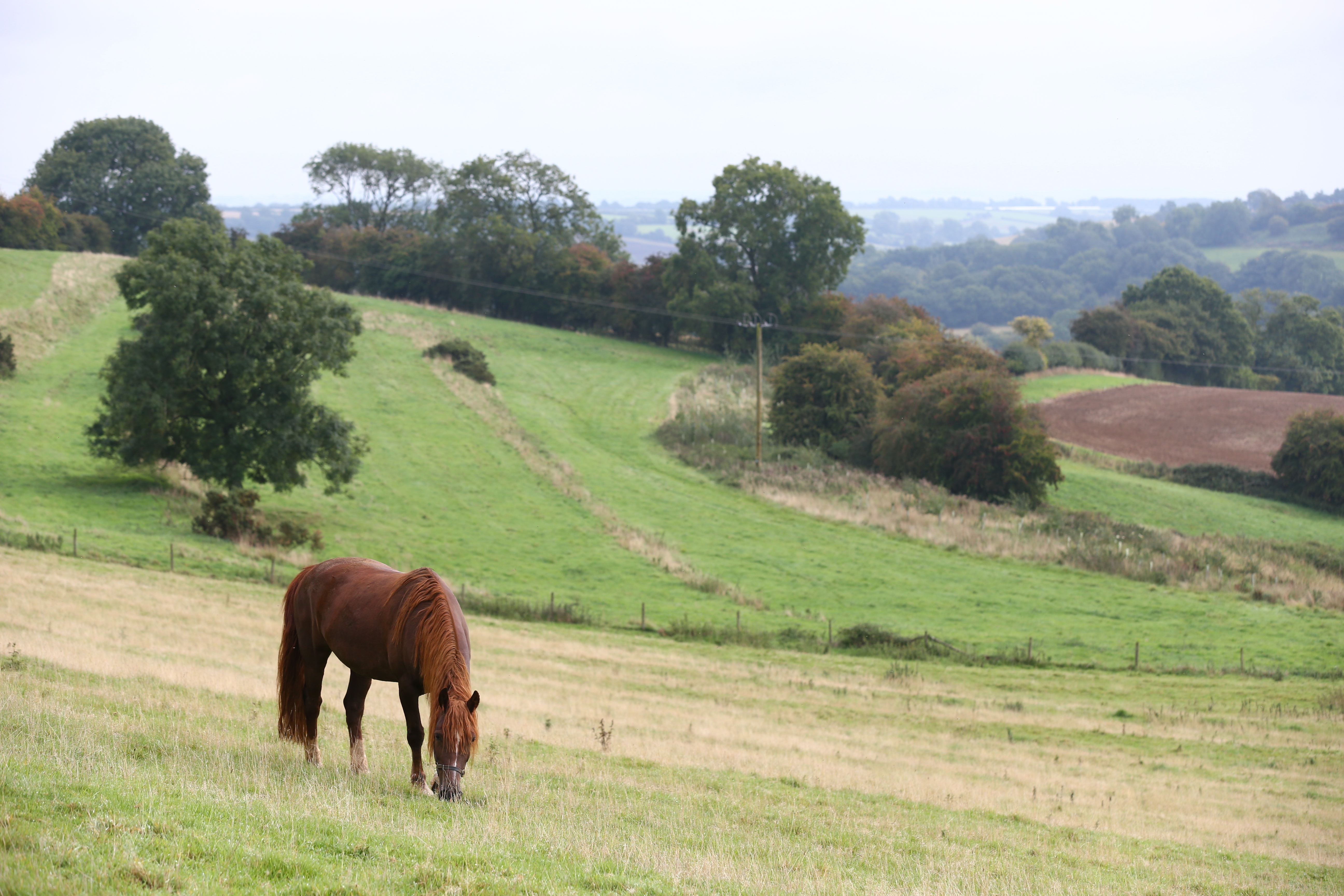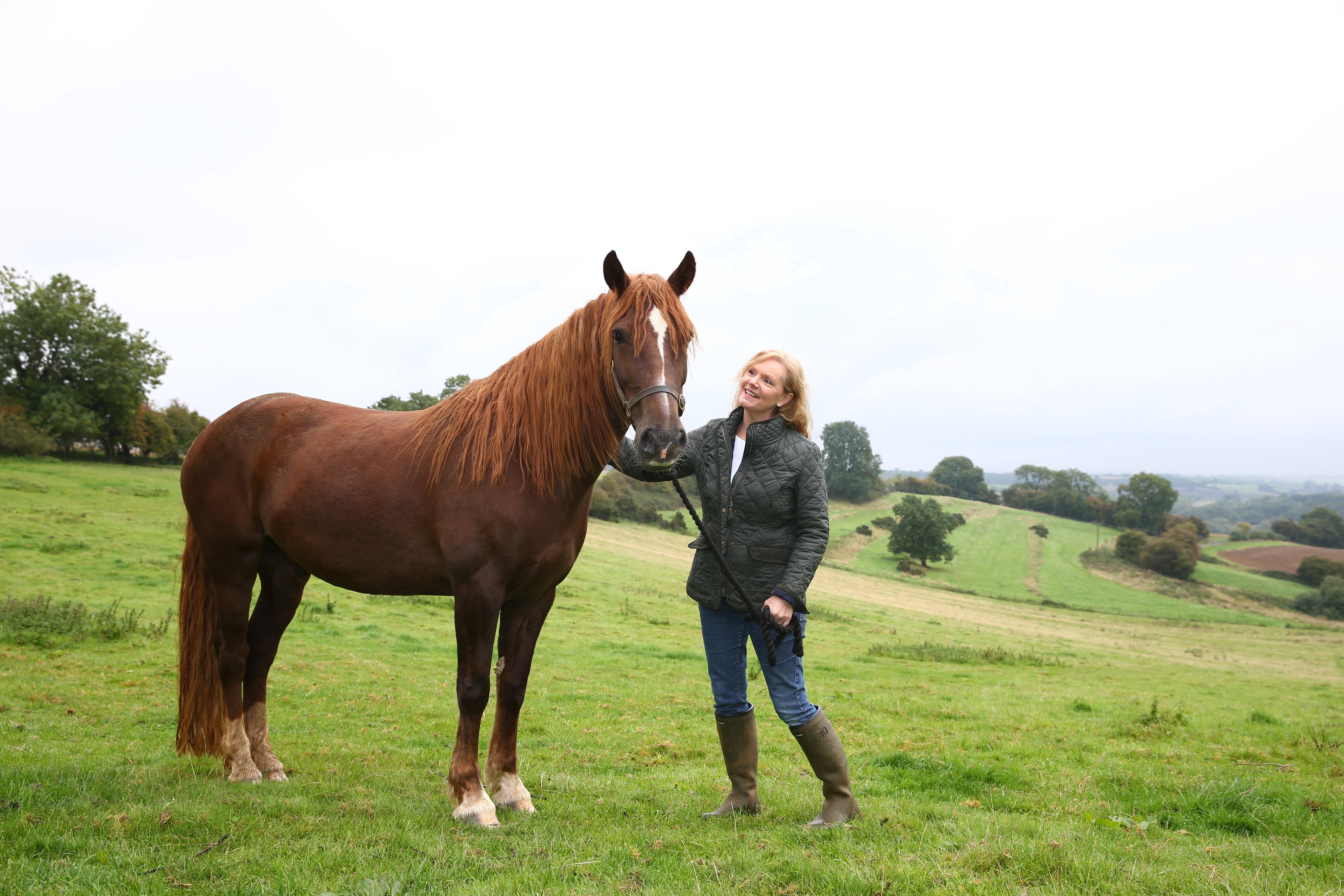Brave Boyd is back on his hooves after years of rehabilitation

Boyd was living in squalor without food, shelter or care, and was terrified of people. Today, he’s unrecognisable in his new home…
Afraid of people and neglected, poor Boyd must have been terrified when he first came to Blue Cross. The 18-month-old pony had never known human kindness, and he didn’t know what it was to trust – how could he?
Boyd had been living in squalor, left to roam in a cement yard without any proper food, shelter or veterinary care. We took him in with two other ponies, Spencer and Young, in 2011. They were in a bad way too but it was Boyd’s condition which was the most shocking.
He was malnourished, weak and infested with lice. His muscles were severely wasted and he was riddled with worms. The young pony’s condition was so critical that it was going to be a battle to keep him alive.
Tamzin Boyd, from the Rolleston rehoming centre team that cared for Boyd, said: “It was clear from the onset that these horses had never been handled as they were extremely nervous around people.”
Time, space and encouragement
We kept Boyd comfortable for a few weeks and monitored him closely, without getting too close.
Too much attention too soon can have a seriously detrimental impact on the recovery of horses who, like Boyd, are terrified of people. We tread carefully around these ponies, giving them the time and space they need to get used to us, along with plenty of encouragement.
Tamzin said: “His two companions progressed quickly and were rehomed together, where they grew in confidence, but poor Boyd really struggled for a long while.”
Over many months, the team spent a lot of time working with Boyd to bring him out of his shell.
After his traumatic past, it took him quite some time to adapt to life at the centre, but his training progressed, slowly but surely.
Spring awakening
In spring 2014, Boyd was ready to go to a foster home. Fostering is an important stage of a Blue Cross horse’s rehabilitation as it allows us to monitor their behaviour away from the rehoming centre environment, and helps to give us a really good idea of the type of home that will best suit them.
Tamzin said: “Boyd went to live in a livery yard with a variety of horses. He got used to a consistent routine and met many people, including children, and adapted well to the busy atmosphere. It did him the world of good and he started to take life in his stride.”
We discovered that Boyd would benefit from a very special home with someone who was truly understanding of his nervous nature and character. They would need to spend plenty of time with him and give him lots of love.
We’re delighted to tell you that in the summer of last year, Boyd found that perfect home.
Boyd has only been in his new home for a matter of weeks when we catch up with him, but not only has he settled in, he has bonded with new owner Jane Wight beautifully.
As you can probably tell from Boyd’s wavy mane in the photographs, it’s been raining when we catch up with him, but that doesn’t faze him. He and his new best friend horse Boris, who Jane adopted from another animal charity, have been having a great time racing around their nine acre paddock and rolling in the mud.
Happy home
It’s a joy to watch this once so timid chap galloping around carefree.
Aware of Boyd’s confidence issues, Jane has been taking her time to introduce him to new items.
She says: “Every week I’ve introduced a new thing, like carrier bags, which are all crinkly and can suddenly blow up in the wind, and brushes.
"I just have the thing with me and not do anything with him for two or three days, and then I gradually show it to him very carefully. I keep progressing with it all the time.”
Jane gives Boyd a brush and says: “I definitely couldn’t have done this with him when he first arrived.
“It just takes such patience with animals; you have to let them come on in their own time.”
When an animal arrives in such a shockingly bad state, our rehoming teams face an uphill and emotional battle to get them ready for a home – but seeing them happy and loved makes it all so worthwhile, and we couldn’t be happier for Boyd.
We simply couldn’t have got Boyd back on his hooves without your support. Thank you.




